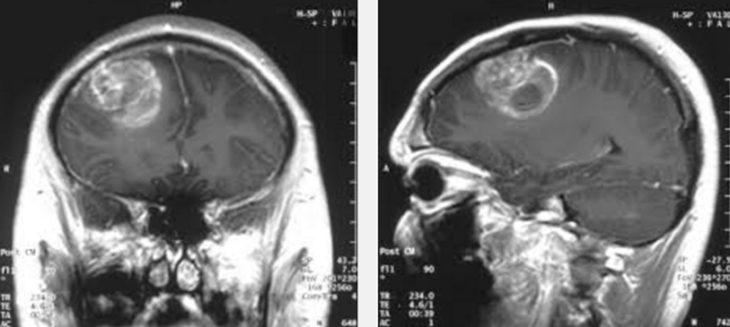Research Finds ‘Achilles Heel’ Of Brain Cancer, Hopes To Treat Deadly Glioblastoma In New Ways

In case you’ve never heard of the word glioblastoma, now is the time to learn what it is. According to the National Brain Tumor Society, a ‘Glioblastoma (GBM) is one of the most complex, deadly, and treatment-resistant cancers,’ and ‘GBM account for 49.1 percent of all primary malignant brain tumors,’ with around 10,000 people dying of GBM every year in the United States only.
But just recently, in an incredible breakthrough, scientists have found what they are considering a rogue protein that actually feeds this deadly brain cancer, and it will now help them figure out a more effective and successful way to treat this type of cancer that usually only has a 10% survival rate with less than 10% of those patients living for more than 3 years from the time they are diagnosed.
Using gene editing, these scientists have figured out a way to deactivate this protein. And in the process, it stops the tumor from growing. They also say that this is a highly encouraging sign.
Professor Alea Mills, who happens to be the paper’s lead author shares, “The aggressiveness of glioblastoma is notorious. The norm is to do surgery, treat with harsh drugs and just hope for the best.”
Professor Mills and the rest of her team have tagged this find as the “Achilles heel of glioblastomas,” since it may not only bring them to better forms of treatment for this usually fatal cancer, but it may also help scientists better understand why these cancers are so aggressive in the first place.
It was explained that the bromodomain-containing protein 8, otherwise referred to as BRD8, managed to suppress the activity of the P53 gene, which also happens to be the most vital cancer-preventing portion of a cell. The P53 codes for proteins manage to stop the cells from dividing when they should usually die, and notably, almost every type of cancer relies on the disruption to the P53 activity or their production.
During their experiments, the researchers were able to deactivate the BRD8 by using a ‘pioneering gene editing technique.’ They found that without an overactive BRD8, the P53 proteins were able to code normally once more and the tumors, which were taken from human patients and transplanted into mice, were stopped in their tracks.
In addition, when the team deactivated the BRD8, they found that the P53 gene unlocked and as a result, the tumors stopped growing, and the rodents were able to live longer.
The study findings, which were published in Nature journal, suggest that should drugs be given that precisely target BRD8, it may just work to fight against glioblastoma.
It’s the hope of Professor Mills that these new findings may just be the breakthrough that doctors are looking for to turn what would normally be considered an almost fatal brain cancer diagnosis into a treatable, manageable, disease that may hopefully extend the life expectancy of patients by a remarkable amount.



